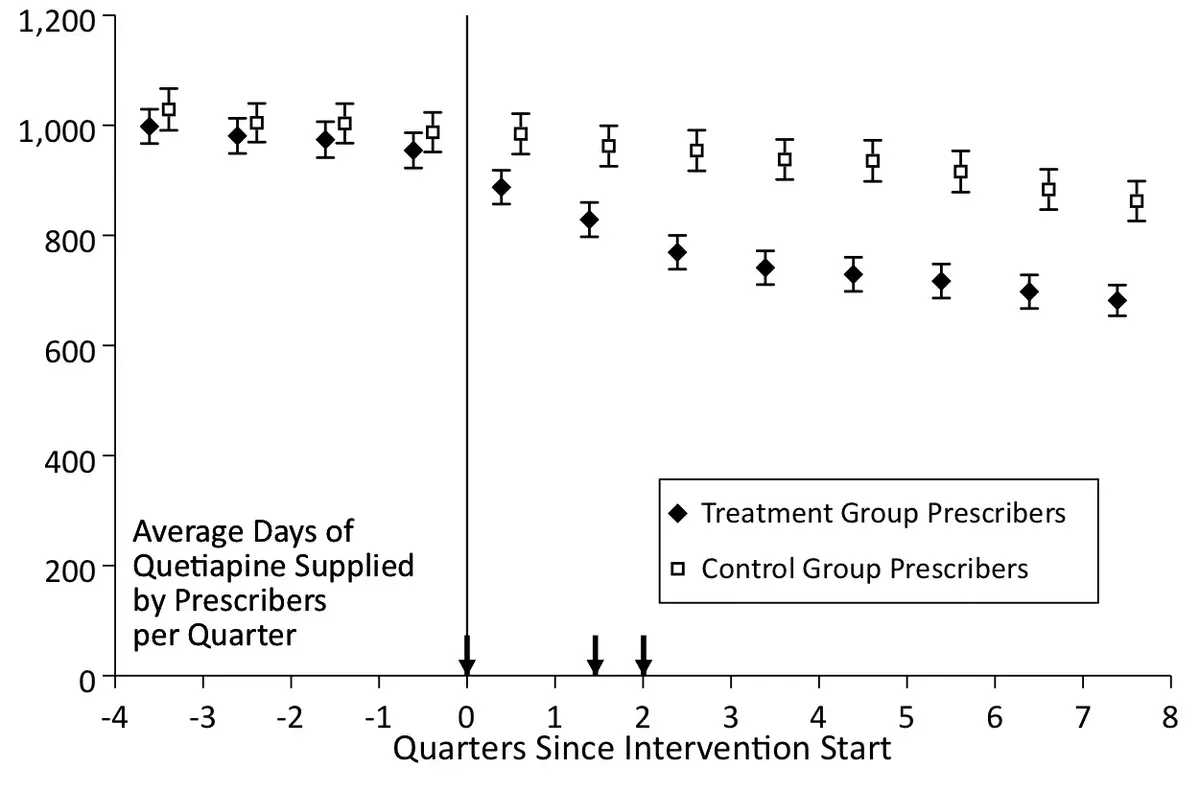Reducing overprescribing of Quetiapine in Medicare Part D

Person sitting in front of computer holding documents
What was the challenge?
Antipsychotics such as quetiapine are often prescribed for reasons not supported by clinical evidence, increasing healthcare costs and potentially exposing patients to harms. The Center for Program Integrity (CPI) at the Centers for Medicare and Medicaid Services (CMS) partnered with OES to improve the value and safety of quetiapine prescribing in Medicare Part D.
What was the program change
CPI and OES sent a series of peer comparison letters to high volume prescribers indicating that their quetiapine prescribing was extremely high relative to their within-state peers and that it was under review.
How did the evaluation work?
CPI and OES randomly assigned high volume prescribers (N = 5,055) to get a treatment or control letter. CPI and OES compared the days of quetiapine supplied by the prescribers and the days of quetiapine received by the prescribers’ baseline patients (N = 89,500) over 9 months.

What was the impact?
Sending peer comparison letters to high volume prescribers of quetiapine reduced prescribing, and did so without any detectable adverse impacts.
Related publications:
Adam Sacarny, Michael L. Barnett, and Jackson Le. Effect of peer comparison letters for high-volume primary care prescribers of quetiapine in older and disabled adults: a randomized clinical trial. JAMA Psychiatry 75 no. 10 (October 2018): 1003-1011.
Adam Sacarny, Michael L. Barnett, and Shantanu Agrawal. New Evidence on Stemming Low-Value Prescribing. NEJM Catalyst, April 10, 2019, catalyst.nejm.org/new-evidence-stemming-overprescribing/.
Adam Sacarny, Andrew R. Olenski, and Michael L. Barnett. Association of Quetiapine Overuse Letters With Prescribing by Physician Peers of Targeted Recipients: A Secondary Analysis of a Randomized Clinical Trial. JAMA Psychiatry, June 4, 2019, jamanetwork.com/journals/jamapsychiatry/article-abstract/2735441.
